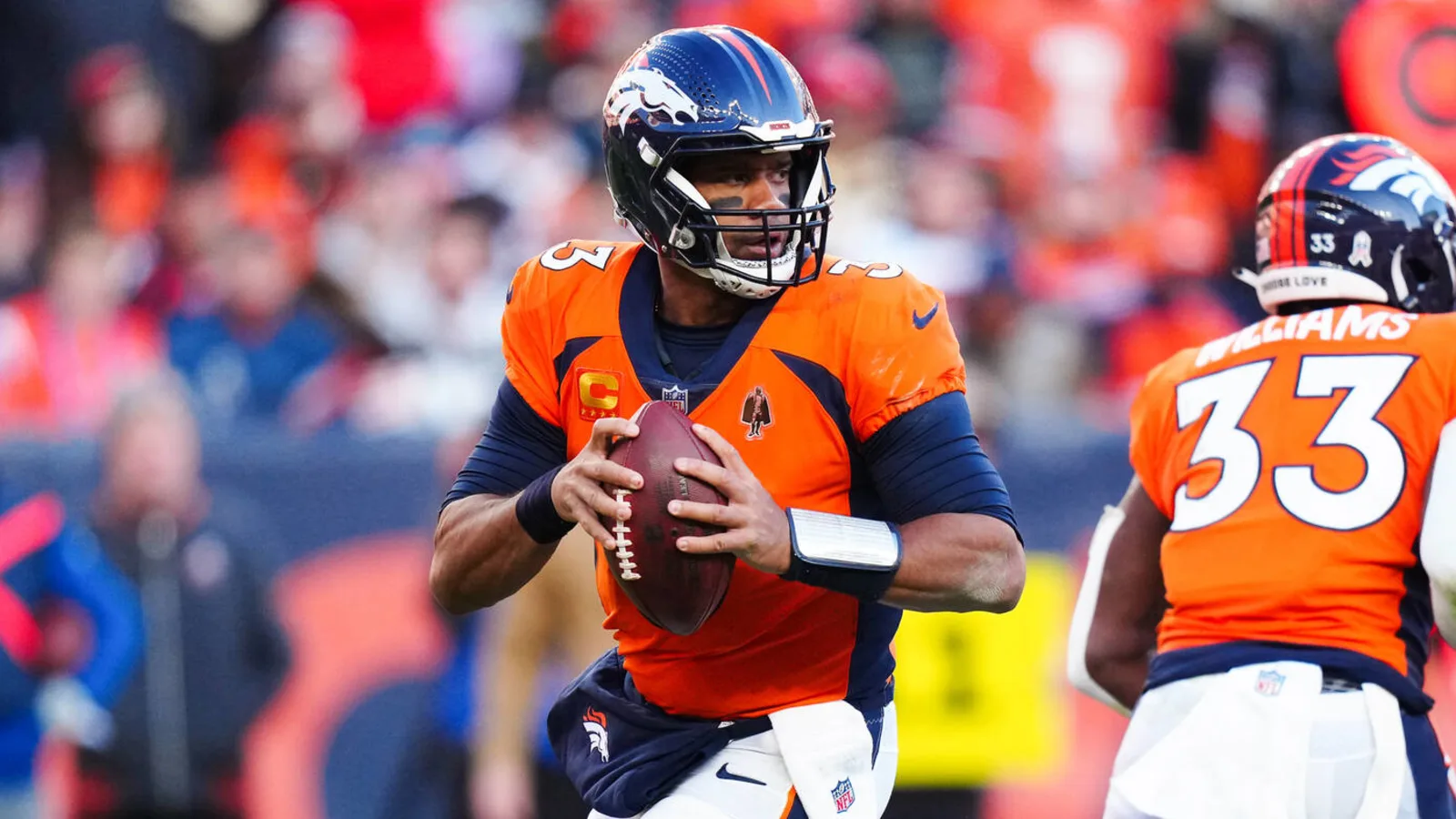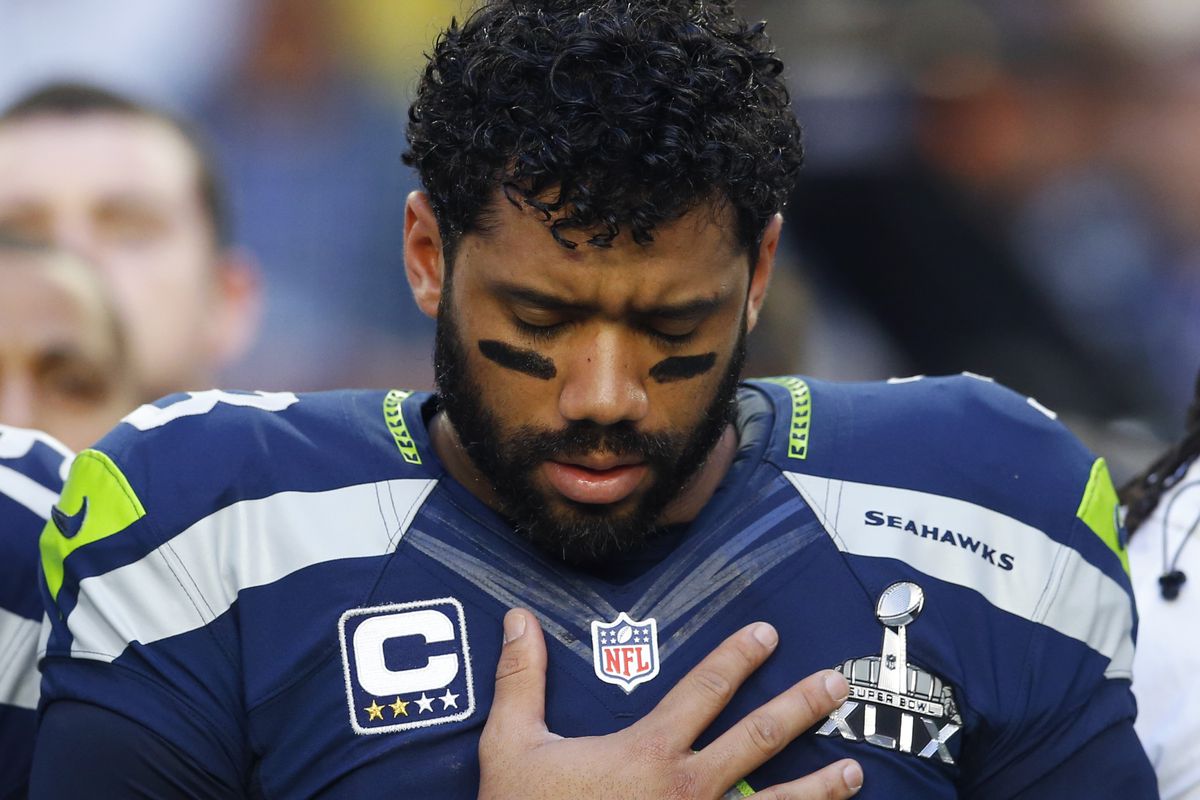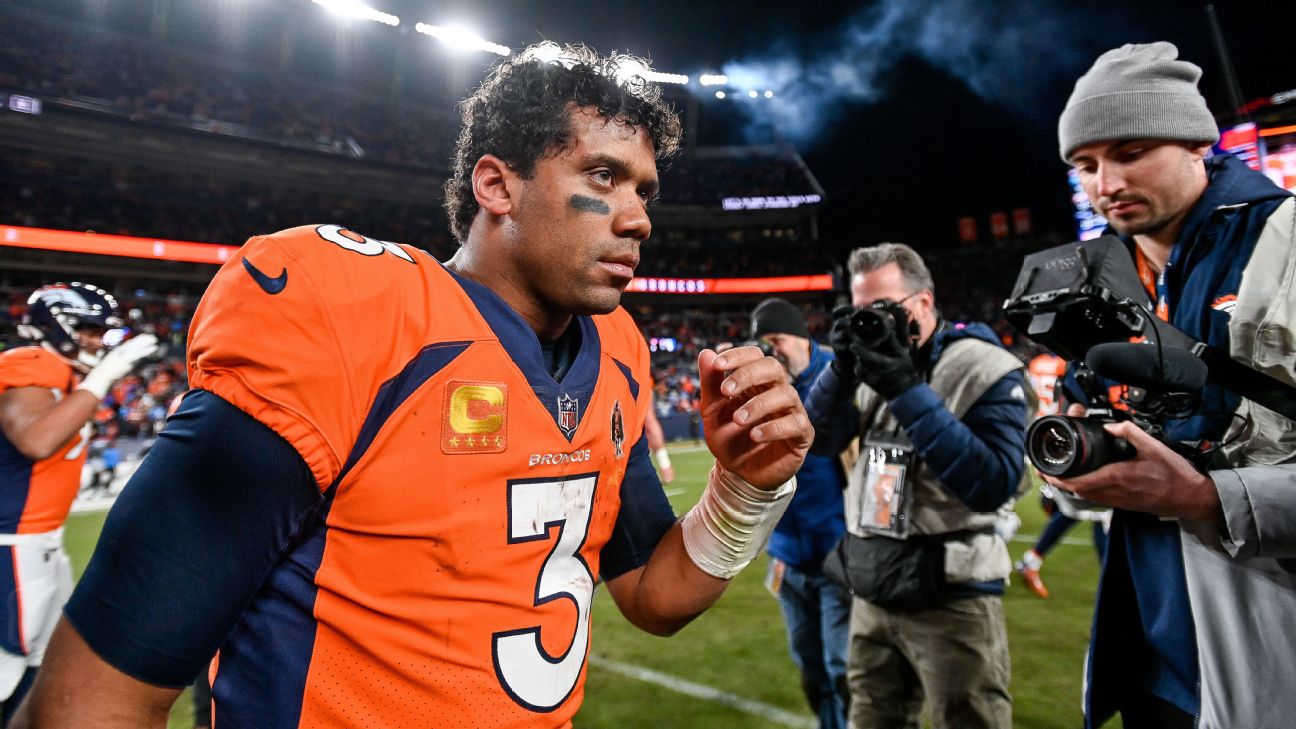The Denver Broncos have parted ways with quarterback Russell Wilson in a fashion that has raised eyebrows and prompted a reevaluation of their future strategy. This decision, while seemingly abrupt, reflects a deeper strategic play by the Broncos, one that could define their trajectory in the years to come.

Denver Broncos’ Bold Decision Amidst Financial Complexity
The Broncos’ choice to release Russell Wilson comes with a hefty financial implication—an $85 million dead cap hit, a bold move that underscores the team’s willingness to endure short-term pain for long-term gain.
Late night addition to yesterday’s signings:
Another DL, Denver’s Jonathan Harris.
The 6-5, 295lber has 81 tackles in 33 career games, mostly with the Denver Broncos. https://t.co/rtkkDPqGqf pic.twitter.com/aAXJvbuO0s
— The Kevin Harlan Effect (@KevHarlanEffect) March 15, 2024
Instead of spreading this financial burden over two years by designating Wilson as a post-June 1 cut, the Broncos have opted for a more aggressive approach. They’re absorbing a $53 million dead cap charge in 2024 alone, leaving a significantly lighter load of $32 million for 2025.
This decision, as reported by Mike Florio of Pro Football Talk, signifies a clear intent by the Broncos to reset their financial and strategic framework more swiftly than many anticipated. The immediate impact is undeniable; a $53 million dead cap charge in 2024 will undoubtedly constrict the team’s flexibility in the short term. Yet, it’s a calculated risk that the Broncos seem prepared to take.

Denver Broncos’ Strategy Revealed: Punting the 2024 Season?
The ramifications of this decision extend beyond the financials. The Broncos’ maneuver suggests a broader strategy that might involve conceding the 2024 season to rebuild more robustly for the future. Given the draft capital sacrificed in acquiring Wilson, Denver finds itself in a challenging position for the 2024 NFL Draft, particularly in securing a top quarterback prospect without the ammunition to trade up from the No. 12 pick.
Further indicating a strategic pivot, the Broncos’ recent moves—or lack thereof—in the free agency market, alongside trading Jerry Jeudy, signal a team gearing up for a reset. This approach, while painful in the short term, aligns with a vision that prioritizes long-term success over immediate gratification.
Denver Broncos’ Long-Term Outlook
The Broncos’ handling of Russell Wilson’s release is a testament to their commitment to rebuilding and recalibrating their team dynamics. By taking the dead cap charge head-on, they’re not just making a financial decision; they’re making a statement about their future.
This approach, while bold, is not without its logic. In the complex world of NFL finances and team building, sometimes the best way forward involves taking a step back. The Broncos are positioning themselves to emerge from this challenging period with greater financial flexibility and a clearer path to assembling a competitive team.

A Gamble with Eyes on the Prize
The Denver Broncos’ decision to release Russell Wilson, absorbing a monumental dead cap charge in the process, is a gamble that has sparked much debate. However, it’s a calculated risk that could pave the way for a brighter future. By opting to face the financial and competitive challenges head-on in 2024, the Broncos are laying the groundwork for a resurgence that their fans and team alike hope will pay dividends in the coming years.
In the ever-unpredictable game of football, Denver’s strategy embodies the adage that sometimes, to build anew, one must first clear the old. The Broncos’ current course is a bold testament to their resilience and strategic foresight, with the potential to redefine their destiny in the NFL landscape.

Source: Fansided









